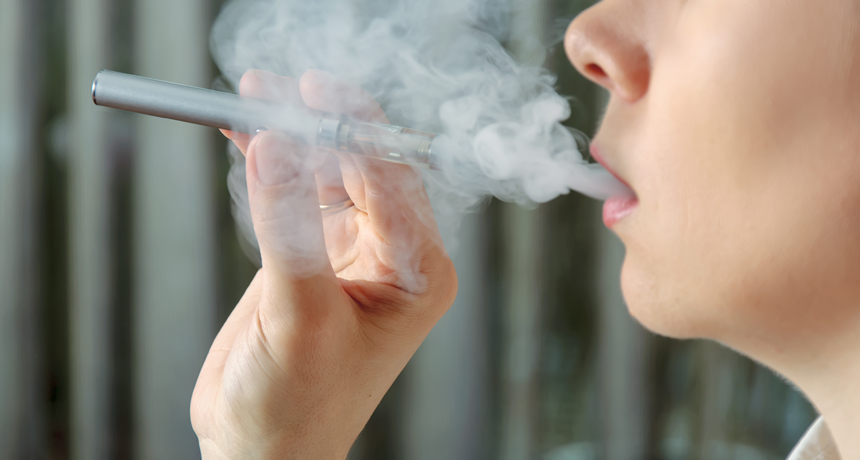There's new research suggesting that a switch over to e-cigarettes can help cigarette smokers kick their habit -- even if initially they didn't intend to.
The small British study of 40 people "found that vaping may support long-term smoking abstinence," lead researcher Dr. Caitlin Notley, of Norwich Medical School, at the University of East Anglia, said in a university news release.
Still, anti-smoking advocates in the United States stressed that vaping isn't without its own hazards.
First of all, prior research shows that ex-smokers who vape often return to tobacco cigarettes, said Dr. Len Horovitz, a lung specialist at Lenox Hill Hospital in New York City.
And, "while there are certainly more harmful chemicals in cigarette smoke, there is a question of safety in e-cigarettes because of the presence of propylene glycol, and other as yet unidentified compounds," Horovitz said.
In the new study, Notley's group asked 40 people who used e-cigarettes about their tobacco smoking history and prior attempts to quit smoking, and about their vaping habits. The investigation was funded by Cancer Research UK.
According to Notley, the study revealed that vaping provides smokers with "many of the physical, psychological, social and cultural elements of cigarette smoking." Beyond that, vapers described the activity as "pleasurable in its own right, as well as convenient and cheaper than smoking," she said.
"But the really interesting thing we found was that vaping may also encourage people who don't even want to stop smoking, to eventually quit," Notley said.
Most of the participants were long-time tobacco cigarette smokers and had tried to quit many times, but about 17 percent said they enjoyed smoking and had never seriously attempted to quit.
"These were our accidental quitters," Notley said. "They hadn't intended to quit smoking and had tried vaping on a whim, or because they had been offered it by friends. They went on to like it, and only then saw it as a potential substitute for smoking."
The findings suggest "that vaping is a viable long-term substitute for smoking, with substantial implications for tobacco harm reduction," according to Notley.
But another U.S.-based anti-smoking advocate agreed with Horovitz that smokers -- and everyone else -- should approach e-cigarettes with caution.
"With regard to their safety, though e-cigarette aerosol generally contains fewer toxic chemicals than the smoke from regular cigarettes, there is still concern," said Andrea Spatarella, of the Center for Tobacco Control at Northwell Health in Great Neck, N.Y.
"The CDC also reports that adult e-cigarette users often do not stop smoking cigarettes completely, but continue to use both a vaping product and cigarettes," she noted. The bottom line, Spatarella said, is that "data analysis on the e-cigarette's utility for long-term smoking cessation remains a work-in-progress."
The study was published June 20 in Harm Reduction Journal.
Fuente: www.upi.com
